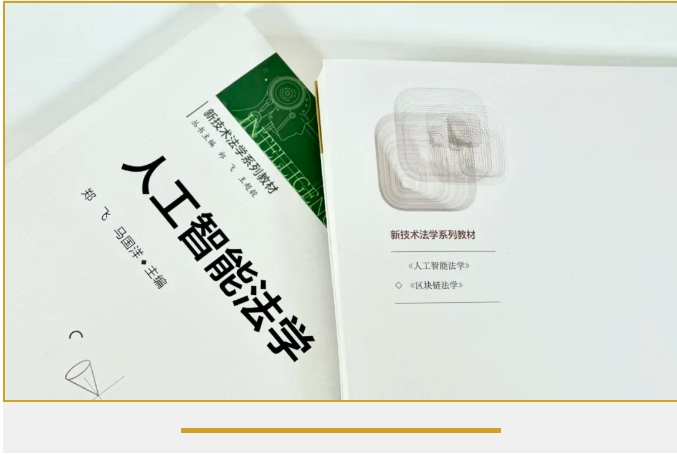
Blockchain Jurisprudence
Author: Zheng Fei, Wang Yijue Editor-in-chief
ISBN: 978-7-5764-1317-5
Pricing: 98 RMB
China University of Political Science and Law Press 2024 April
Editor-in-Chief's Introduction
Zheng Fei is a part-time lawyer of Beijing King&Capital Law Firm, a professor and doctoral tutor of China University of Political Science and Law, a visiting scholar of Northwestern University School of Law, a researcher of the Research Base for Prosecutorial Evidence Analysis of Serious Crimes of the Supreme People's Procuratorate, an invited expert of the CCTV News 1+1 programme, a supervisor of the Supervisory Board of the Beijing Rule of Law Society for Digital Economy and Digital Governance, and a supervisor of the virtual board of ‘New Technology Law’. Supervisor of the Supervisory Board of the Beijing Digital Economy and Digital Governance Rule of Law Research Association, and initiator of the virtual teaching and research department of ‘New Technology Law’. He has been selected as an expert in the ‘Capital Law Senior Talent Pool’, and one of the ‘Hundred Legal Talents’ in Beijing. He has long been devoted to the jurisprudence and practice of new technologies such as the Internet, big data, blockchain, artificial intelligence and biotechnology, and is the author of ‘Artificial Intelligence Jurisprudence’, ‘Blockchain Jurisprudence’, ‘Report on the Rule of Law Development of China's Artificial Intelligence’ and ‘Report on the Rule of Law Development of China's Blockchain’. In litigation, he has long been focusing on criminal and civil cross-cutting areas, and is committed to the prevention and control of criminal legal risks for enterprises and executives, and has successfully handled a number of difficult corporate criminal and civil and commercial cases, including economic crimes, new technology crimes, office crimes, and corporate litigations. Intentional Injury: Innocent Case Rules and Defence Strategies’.
Wang Yijue is a lecturer at the School of Law of Beijing Jiaotong University, a doctor of law at Renmin University of China, and a visiting scholar at Queen Mary University of the United Kingdom and the Korea Institute of Criminal Policy. He is mainly engaged in the research of criminal law and new technology law. He has published several papers in CSSCI source journals such as Chinese Journal of Criminal Law, Journal of National Prosecutor's College, Oriental Law, etc., one of which was reprinted in full in Xinhua Digest (2018 Supplement). He participated in writing the textbooks of Artificial Intelligence Law and Blockchain Law, and presided over a number of projects such as China Postdoctoral Science Foundation.
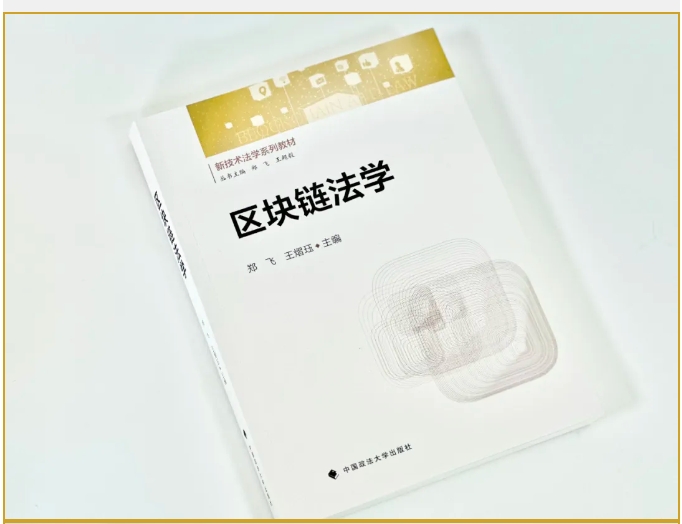
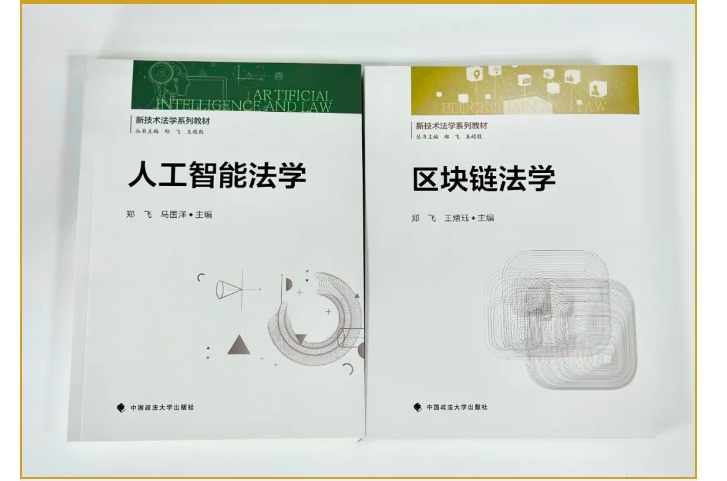
Content Introduction
Blockchain jurisprudence is an emerging cross-cutting jurisprudence, which focuses on the legal application of blockchain and related legal issues brought about by the development of blockchain. This book summarises the theoretical system of blockchain law in the form of a textbook as ‘theoretical foundation + scenario application’, which covers the basic theories of blockchain law, but also delves into the real issues and focuses on ‘scenario application’, including various application scenarios of blockchain technology and its legal issues. This book helps to break down the various blockchain technologies and their legal issues. This book helps to break the disciplinary barriers between various blockchain technologies and jurisprudence, promote the communication and collaboration between scientific and technological researchers and legal researchers, and enrich and develop the research perspectives of the rule of law in the era of new technologies. At the same time, this book, as a cross research result of blockchain and jurisprudence, can be used as a research by teachers and students of colleges and universities and practical personnel in related fields, and also as a textbook for reference use by students of colleges and universities.
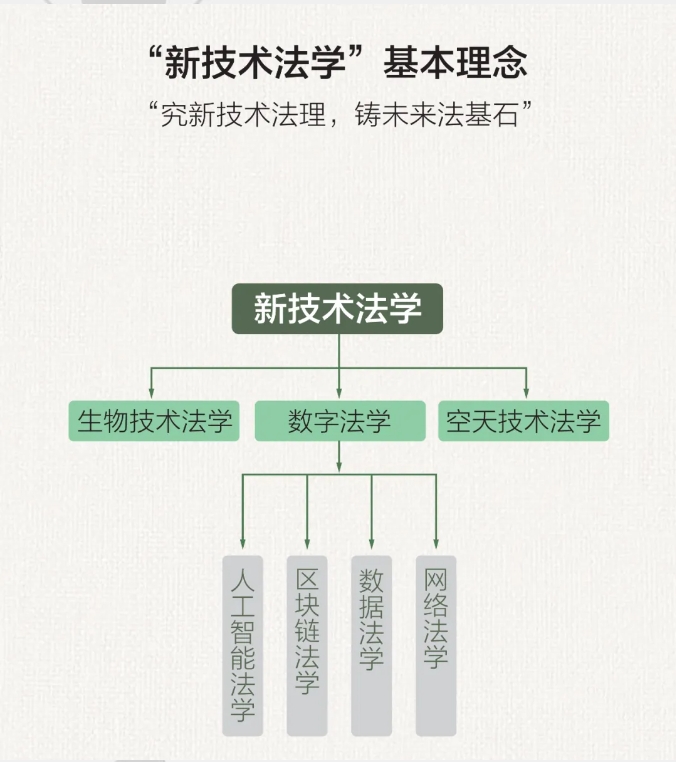
Table of Contents
Part I Basic Theory of Blockchain Jurisprudence
Chapter 1 Overview of Blockchain003
Section 1 Brief History of Blockchain 003
Section 2: Principles and Basic Characteristics of Blockchain 012
Chapter Two Legislative Development of Blockchain 024
Section 1 Overview of Domestic Blockchain Legislation 024
Section 2 Overview of Extraterritorial Blockchain Legislation 031
Section III The Future Direction of Blockchain Law 042
Chapter 3 The Fundamentals of Blockchain Law 055
Section I. Why Blockchain Needs Blockchain Law for Regulation 055
Section 2: The Jurisprudential Significance of Blockchain Law 062
Section 3: The Concept and Characteristics of Blockchain Law 064
Section IV Theoretical System of Blockchain Law 067
Part II Digital Currency and Its Legal Problems
Chapter 4 Overview of Digital Currency 073
Section 1 The Concept and Characteristics of Digital Currency 073
Section 2 Types of Digital Currency 081
Section III Legal Attributes of Digital Currency 085
Chapter V. Legal Regulation of Digital Currency Related Behaviour 099
Section 1: Regulation of Digital Currency ‘Mining’ Behaviour 099
Section 2: Regulation of Issuance of Digital Currency 113
Section III: Regulation of Digital Currency Trading Behaviour124
Chapter 6: Regulation of Digital Currency Trading Platforms136
Section 1: The Development History of Digital Currency Trading Platforms 136
Section 2: Operation Modes of Digital Currency Trading Platforms 139
Section 3: Regulatory Practice of Digital Currency Trading Platforms in China 143
Section 4 Regulatory Practice of Extraterritorial Digital Currency Trading Platforms147
Section V. The Regulatory Logic of Digital Currency Trading Platforms 157
Chapter 7 Digital Currency Crimes and Their Regulation 166
Section I. Criminal Risks in the Field of Digital Currency and Its Regulatory Concept 166
Section 2 Digital Currency Crimes: Object-based Crimes and Their Regulation 170
Section III. Digital Currency Crime No. 2: Instrumental Crime and Its Regulation176
Section 4 Digital Currency Offences III: Nominal Offences and their Regulation 192
Chapter 8 Central Bank Digital Currency and Its Legal Issues200
Section I. Overview of Central Bank Digital Currency200
Section II The Practice of Central Bank Digital Currency 204
Section III Legal Issues of Digital RMB211
Part III Smart Contracts and Their Legal Issues
Chapter 9 Overview of Smart Contracts 219
Section 1: Concept, Characteristics and Architecture of Smart Contracts 219
Section 2: Relevant Applications of Smart Contracts 226
Section 3: Shackles on the Development of Smart Contracts 230
Chapter 10 The Impact of Smart Contracts on Contract Law 235
Section I. Theoretical Disputes on the Private Law Attributes of Smart Contracts 235
Section 2: Smart Contracts and the Nature of Contracts and New Forms of Expression 239
The Impact of Smart Contracts on Contract System 242
Part IV: Meta-Universe and Its Legal Problems
Chapter 11 Overview of Meta-Universe251
Section 1: The Origin of Metaverse 251
Section 2: Concepts and Characteristics of the Metaverse 254
Chapter 12 Legal Normative Problems Posed by the Metaverse 261
Section I. New Phenomena and Their Problems Brought by the Metaverse to Substantive Law 261
Section 2 New Phenomena and Their Problems Brought by the Meta-Universe to Procedural Law 275
Chapter XIII Meta-Normative System and its Interface with Law285
Section I. Introduction to Meta-Norms285
Section 2 Meta-Normative Construction and Interface with Law288
Part V. Legal Applications of Blockchain
Chapter 14 Judicial Application of Blockchain299
Section I. Overview of Judicial Application of Blockchain300
Section 2: Governance Mechanism of Claims under Blockchain Technology302
Section III Claims Behaviour Visualisation under Blockchain Technology 313
Section IV Blockchain Enabling Criminal Investigation 318
Section V Blockchain Technology Enabling Enforcement Difficulties325
Chapter XV Blockchain Evidence 330
Section I. Concepts and Types of Blockchain Evidence 330
Section II The Impact of Blockchain Evidence on Traditional Electronic Data 336
Section III Judicial Review of Blockchain Evidence 338
Section IV Future Prospects of Blockchain Evidence349
Chapter 16 Blockchain and Intellectual Property Protection 355
Section I Blockchain Technology and Copyright Protection 356
Section II Blockchain Technology and Other Intellectual Property Protection 363
Part VI Legal Issues of Blockchain Applications
Chapter 17 Legal Issues of Blockchain Application in Financial Industry373
Section 1: Blockchain Applications in the Banking Industry 373
Section 2 Blockchain Application in Securities Industry 376
Section III Blockchain Application in Insurance Industry 379
Section 4 Legal Issues of Blockchain Financial Applications 381
Chapter 18 Legal Issues of Blockchain Application in Other Fields 385
Section I. Legal Issues of Blockchain Governmental Applications 385
Section 2: Legal Issues of Blockchain Applications in Economic Field 389
Section III: Legal Issues in the Application of Blockchain in the Field of People's Livelihood 391
Section IV: Legal Issues of Blockchain Application in Information Field394
Catalogue can be viewed by scrolling up and down
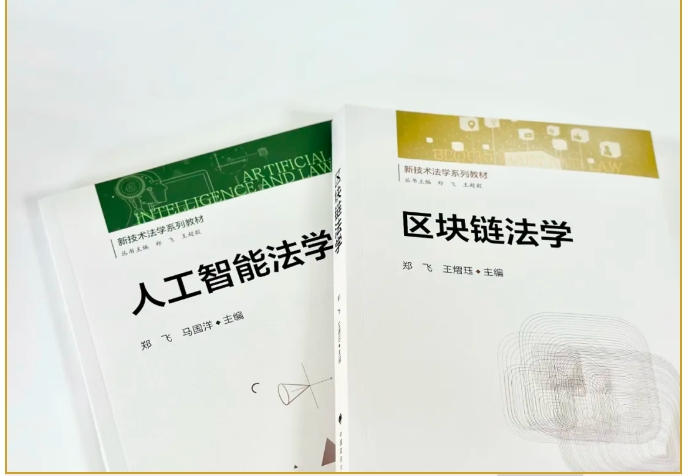
Preface
From Bitcoin and digital currencies in Blockchain 1.0, to Ether and smart contracts in Blockchain 2.0, to the Internet of Value and meta-universe in Blockchain 3.0, Blockchain technology and its applications continue to develop and mature. At the same time, the legal issues of blockchain have gradually come to the fore: the legal attributes of digital currencies and related criminal issues, the challenge of smart contracts to traditional contract law, the legal issues of meta-universe based on blockchain technology, and the judicial application of blockchain evidence. For this reason, domestic universities have set up blockchain law research institutions, the first of which was the South China Blockchain Big Data Rule of Law Strategic Research Institute of Guangxi University for Nationalities (2015), followed by including Xi'an Jiaotong University's Research Laboratory of Blockchain Technology and Legal Innovation (2017), Renmin University of China's Big Data Blockchain and Regulatory Science and Technology Laboratory (2018), and the China University of Political Science and Law's Qingteng Chain Alliance Research Institute -Research Centre for Blockchain Financial Rule of Law (2018), and the Joint Laboratory of Blockchain Legal Innovation at the School of Artificial Intelligence Law of Southwest University of Political Science and Law (2019) were established. Despite the flurry of research, few law schools offer dedicated blockchain law courses. Professor Qi Aimin of Guangxi University for Nationalities, a pioneer in blockchain law, was the first to offer a special blockchain law course (2019), while the School of Law of Beijing Jiaotong University has formally opened an ‘interdisciplinary interdisciplinary undergraduate and research coherent course cluster on new technology law’ from the spring semester of 2021 onwards, which includes AI law, data law, blockchain law, cyber law, space technology, and cyber law. These courses include Artificial Intelligence Law, Data Law, Blockchain Law, Cyber Law, and Space Technology Law. However, the disciplinary system of blockchain jurisprudence is still in the exploratory stage, and this textbook attempts to provide a preliminary textbook system and disciplinary system for blockchain jurisprudence for the reference of blockchain jurisprudence courses offered by major law schools.
In order to promote the development and application of blockchain technology, General Secretary Xi Jinping, when presiding over the 18th collective study of the 19th Political Bureau of the Central Committee, clearly pointed out that ‘it is necessary to promote collaborative research and accelerate the breakthroughs in core technology, so as to provide safe and controllable technical support for the development of blockchain applications. It is necessary to strengthen blockchain standardisation research, and enhance the international discourse and rule-making power’. The report of the 20th Party Congress also further puts forward, ‘Promote the integrated cluster development of strategic emerging industries,...... strengthen the legislation in key areas, emerging areas, and foreign-related areas, and promote the rule of law at home and the rule of law related to foreign affairs in a coordinated manner, so as to promote development with good laws and guarantee good governance.’ It is hoped that this book can provide a little help to accelerate the legislative process in the field of blockchain.
I. Theoretical System and Chapter Structure
This textbook summarises the theoretical system of blockchain law as ‘theoretical foundation + scene application’. The so-called ‘theoretical foundation’ refers to the basic theory of blockchain law; the so-called ‘scenario application’ refers to various application scenarios of blockchain technology and its legal issues. Therefore, this textbook is mainly divided into six parts with 18 chapters, and its basic structure is as follows:
The first part consists of Chapter 1 to Chapter 3, which is the basic theory of blockchain law. The first chapter mainly discusses the development history and fundamentals of blockchain technology, including the background of the birth of blockchain, the evolution of thought, the path of technological development, the fundamentals, the main classifications and basic features. Chapter 2 mainly combs through the legislative development of blockchain, including the evolution of domestic blockchain legislation, extraterritorial blockchain legislation, and the future regulatory direction of blockchain legislation. Chapter 3 mainly refines the basic principles of blockchain jurisprudence, including the necessity of blockchain legal regulation, the basic positioning of blockchain law, research ideas, conceptual connotation, basic features and theoretical system.
The second part consists of Chapter 4 to Chapter 8 for digital currency and its legal issues. Chapter 4 mainly discusses the basic scope of digital currency, including the conceptual controversy, basic features, main classification and legal attributes of digital currency. Chapter 5 mainly compiles the legal issues of digital currency-related behaviours, including the legal issues of ‘mining’ behaviours, issuance behaviours and transaction behaviours. Chapter 6 mainly discusses the regulation of digital currency trading platforms, including the history of development of digital currency trading platforms, operation mode, domestic and international regulatory practices and regulatory logic. Chapter 7 mainly discusses the types of digital currency crimes and their regulation, including object-based crimes, instrument-based crimes, nominal crimes, etc. Chapter 8 mainly comprehends central bank digital currency and its legal issues, including the concept, nature, characteristics, domestic and international practice and relevant legal issues of central bank digital currency.
Part III consists of Chapter 9 and Chapter 10 for smart contracts and their legal issues. Chapter 9 mainly discusses the basic scope of smart contracts, including the concept, characteristics, architecture, application and development shackles of smart contracts. Chapter 10 mainly discusses the impact of smart contracts on contract law, including the private law attributes of smart contracts, their basic nature and the institutional impact on contract law.
Part IV consists of Chapter 11 to Chapter 13 for meta-universe and its legal issues. Chapter Eleven mainly discusses the development history and basic categories of meta-universe, including the origin, concept and characteristics of meta-universe. Chapter Twelve mainly summarises the legal impact of the meta-universe on substantive and procedural law. Chapter Thirteen mainly discusses the meta-normative system and its articulation with law, including the concepts, characteristics, basic principles of meta-norms and their articulation with law.
Part V consists of Chapters 14 to 16 for the legal application of blockchain. Chapter XIV mainly sorted out the judicial application of blockchain, including the application of blockchain in the visualisation of claim behaviours, empowering criminal investigation, and cracking execution difficulties. Chapter 15 explains blockchain evidence, including the concept, types, impact on traditional electronic data, judicial review and future prospects of blockchain evidence. Chapter 16 focuses on blockchain and intellectual property protection, including blockchain technology and the protection of copyrights, patents, trademark rights and trade secrets.
Part VI consists of Chapter 17 and Chapter 18 for the legal issues of blockchain applications. Chapter 17 mainly discusses the legal issues of blockchain application in the financial industry, including the legal issues of blockchain application in banking, securities, insurance and other industries. Chapter 18 mainly sorted out the legal issues for the application of blockchain in other fields including government affairs, economy, people's livelihood, information and other fields.
II. Usage and Supporting Materials
This textbook mainly draws on the arrangement style and teaching method of the textbook ‘Evidence Law’ edited by Professor Zhang Baosheng. In the arrangement style, there is an introduction before each chapter, the key points and reflection questions of the section are listed after each section, and the reading literature of the chapter is also listed after each chapter, which is not only conducive to demonstrating the origin and flow of knowledge, but also facilitates the students to further deepen and expand their learning. In terms of teaching methodology, because blockchain jurisprudence is an emerging interdisciplinary discipline of law, we suggest that when using this textbook, the teacher can adopt a heuristic teaching method by first assigning the students to read the relevant chapters of the textbook and related literature, spending 1/2 of the class period on guided lectures, and 1/2 of the class period on organising students' questions, seminars, and Q&A sessions.
Writing division of labour and sincere acknowledgement
The ‘New Technology Law Series’ is a set of textbooks specially organised and written by the editors for the relevant series of courses offered by the School of Law of Beijing Jiaotong University, mainly including Artificial Intelligence Law, Blockchain Law, Data Law, Cyber Law, and Biotechnology Law to be planned in the future. This textbook is the second one of them, and it is proposed to prepare another one every year. This textbook is developed by the ‘New Technology Law Teaching and Research Team of Beijing Jiaotong University School of Law’, ‘Virtual Teaching and Research Office of New Technology Law’, ‘Virtual Research Group of New Technology Law’, as well as invited elite teachers and students from universities and practical departments. Teachers and students from various universities and practical departments are invited to write the book on the basis of collective discussion and edited by the editors in chief. The chapters are divided as follows:
